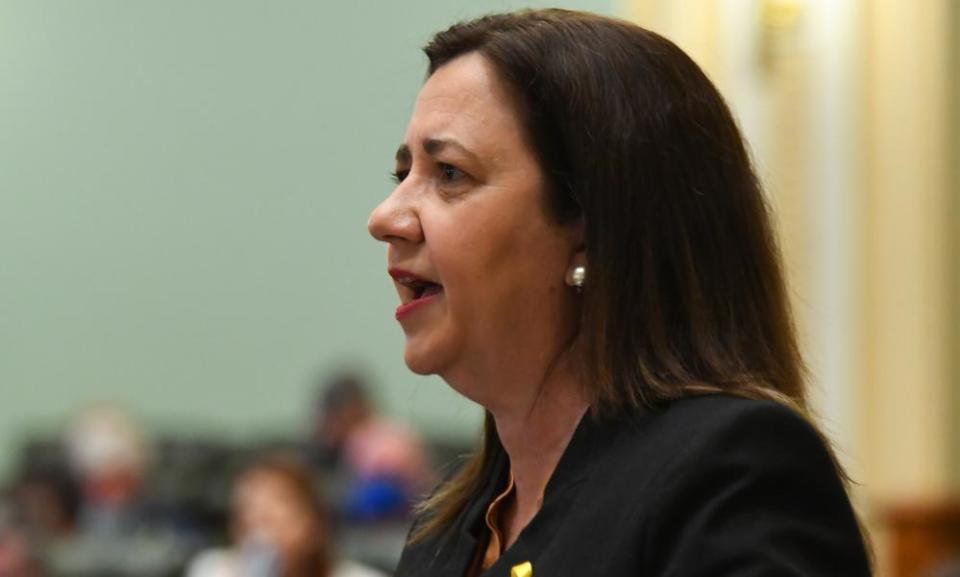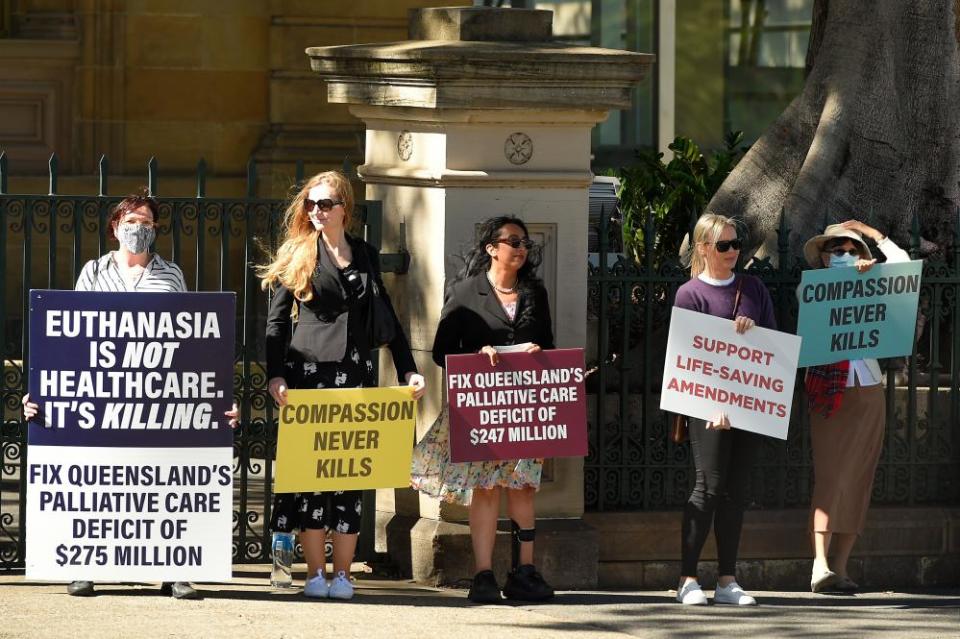Making progress: is Queensland actually as conservative as we think?

Three years ago, when a fledgling movement for voluntary assisted dying laws in Queensland began meeting with MPs to gauge support, campaigners were told not to hold their breath.
Those consultations revealed what the state parliament has now confirmed – significant support among politicians for VAD. The move also had strong public approval. So why the delay?
At the time, the Queensland government made it clear to campaigners that it would not pursue an aggressive agenda of social reform. The state was already about to begin debate on decriminalising abortion, which had been in the criminal code since 1899.
The premier, Annastacia Palaszczuk, said in 2018 an inquiry into VAD could be considered “down the track”, but that the issue wasn’t a priority at the outset of her government’s second term.
Related: Queensland MPs vote to legalise voluntary assisted dying
Change would come. But slowly, cautiously.
Labor has followed a consistent template for social reform in Queensland, where it has held office for most of the last 32 years.
In 2018, former Labor minister Anne Warner told Guardian Australia that when the Wayne Goss government was elected in 1989 there was a lot of “fear” about the idea of opening up debate on abortion laws.
We have to recognise that we have progressed and become more recognisably progressive.
Chris Salisbury
“[At one point] I got a phone call from [Goss] saying ‘don’t scare the horses’,” Warner recalled.
“We’d been out of government for 30 years, change would have to happen slowly and systematically.”
Chris Salisbury, a Queensland political historian from the University of Queensland, says “don’t scare the horses” became like a mantra to Goss during his term in office.
“[Former premier] Peter Beattie said you had to be conscious of not frightening the electorate with too much reform at too quick a pace,” Salisbury said.
“Palaszczuk has got around to some of these harder social reforms that her predecessors couldn’t bring themselves to touch, but there’s a very pragmatic nature to the reform agenda.”
As Palaszczuk’s Labor government now settles into its third term in office, it has come to exploit that pragmatic upside of social progress in Queensland. Two weeks before the 2020 election, a promise to bring voluntary euthanasia laws to the parliament tapped into the more than 80% of voters who supported VAD.

Issues like abortion and VAD have become political third rails for their LNP opposition – wedging them between constituents who want reform and the majority of grassroots party members with fundamental objections.
Many of these reforms are years – even decades – slow in responding to the views of Queensland citizens. They are safe, overdue and popular. They are also plentiful, in a state shaped by anachronisms that hark back to the ultraconservative Bjelke-Petersen years.
The state government has already started work on the next tranche of social reforms. The include a review of the sex work industry that will look at decriminalisation, in a state where the laws are described as “puritanical”. The government has taken steps towards a treaty with First Nations people.
All of which is not to say the current government is particularly leftwing either. Laws targeting climate change protesters and ongoing “tough on crime” rhetoric are not popular with progressive groups. The state does not have an independent environmental protection agency.
ABC Vote Compass data shows Queensland is notionally conservative – sitting marginally to the right of other states.
And while Vote Compass data from the past two federal elections shows community views in Queensland becoming more progressive, voters shifted firmly to the right on polling day in 2019.
Queensland is unquestionably a conservative place in the sense that voters have entrenched reformist governments and rejected radical ones. The rise and fall of Campbell Newman’s one-term Liberal National government seemed to underscore that sentiment; even when the dial shifted to the right, voters felt uneasy with hasty and wholesale changes.
Polling on VAD, gay rights and abortion consistently shows that on those issues – even in regional areas – Queensland is no more conservative than any other states.
Salisbury says the decentralised nature of Queensland has accentuated some very conservative pockets, but that overall the nature of the state has changed substantially.
“We have to recognise that we have progressed and become more recognisably progressive than how we used to be characterised and caricatured,” he says.

 Yahoo News
Yahoo News 